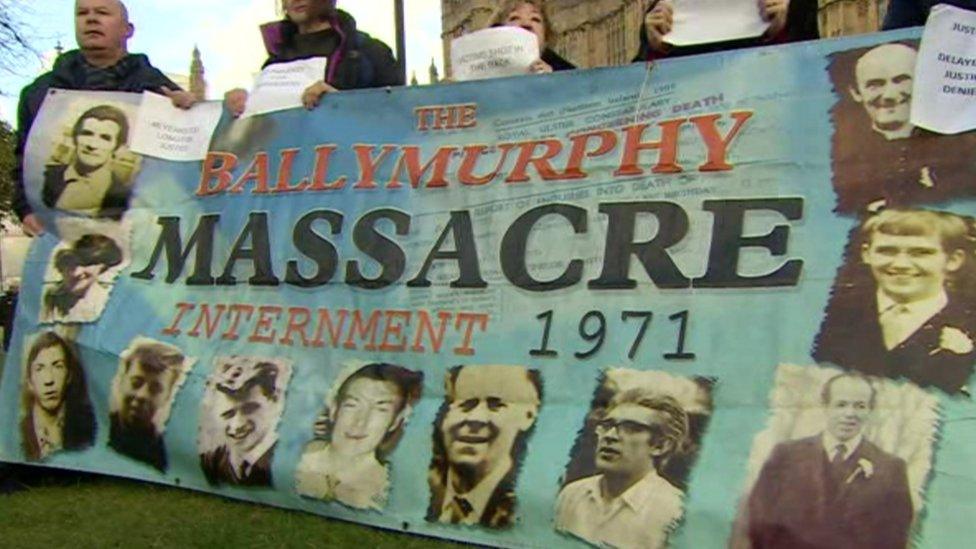Ballymurphy inquest: Soldiers called to give evidence
- Published
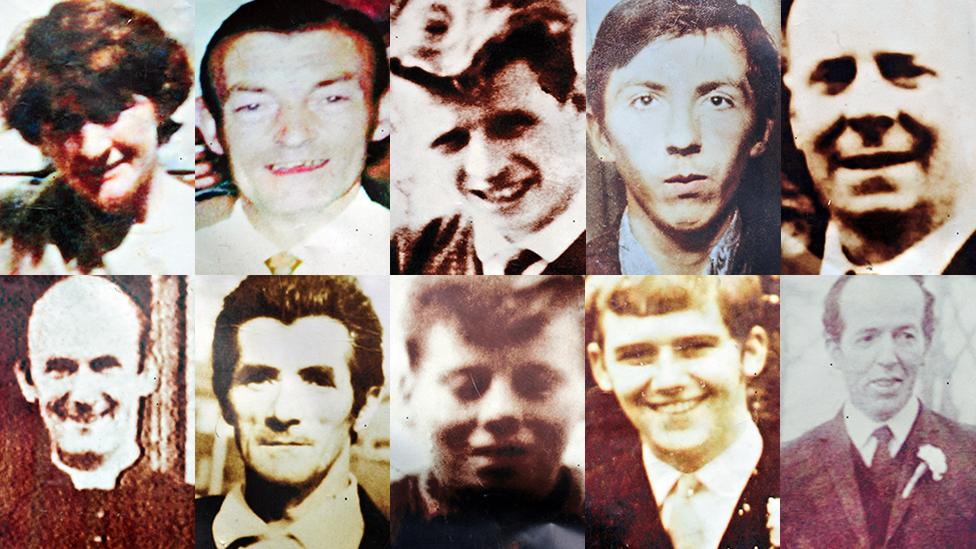
Nine men and a woman were killed in Ballymurphy in August 1971
Three soldiers are being called to give evidence in person for the first time into 10 fatal shootings in west Belfast 47 years ago.
Referred to by many as the Ballymurphy Massacre, nine men and a woman were killed over three days in August 1971.
An inquest into the deaths opened at Laganside Courts on Monday.
The court heard that soldiers, who were in the area at the time of the shootings, made statements which were read at the original inquests in 1972.
But no serving military gave evidence in person.
Sean Doran QC, who is counsel for the coroner, said three soldiers have been identified and "they will be called to give evidence".
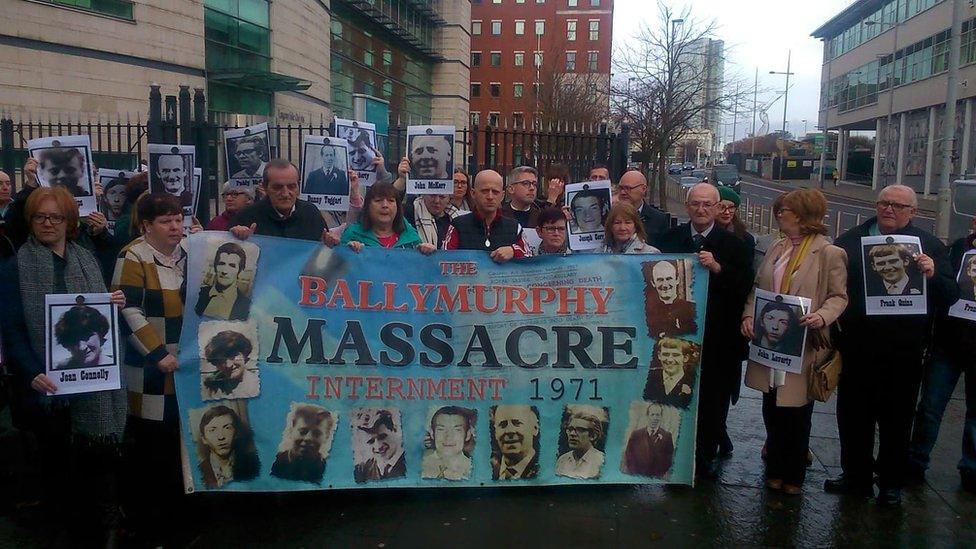
Relatives and supporters gathered outside Laganside Courts on Monday before proceedings got under way
The victims included a priest trying to help one of the wounded and a mother of eight.
The killings happened during an operation by the Army known as Operation Demetrius, in which paramilitary suspects were detained without trial.
At the time the Army said those killed were either IRA gunmen, or caught in the crossfire between soldiers and gunmen.
The families of those who died say they believe the evidence which is heard during the inquest will show their relatives were innocent, and were targeted deliberately.

Who were the victims?
Father Hugh Mullan, 38, and Francis Quinn, 19, were shot in an area of open ground behind Springfield Park
Daniel Teggart, 44, Joan Connolly, 44, Noel Phillips, 19 and Joseph Murphy, 41, were shot near the Henry Taggart Army base near Springfield Park
John Laverty, 20, and Joseph Corr, 43, were shot at separate points at the top of Whiterock Road
Edward Doherty, 31, was shot at the corner of Brittons Parade and Whiterock Road
John McKerr, 49, was shot outside the old Corpus Christi Parish

Another man, Paddy McCarthy, died of a heart attack following an alleged violent confrontation with the troops in the estate.
Loss of records
Opening the hearings, the counsel for the coroner Sean Doran QC said the inquest would cover five separate incidents which saw the 10 deaths over three days, each occurring in or near the Ballymurphy area.
"By any standards, the task facing this inquest is difficult and complicated," he said.
Explaining the degree of unrest in Northern Ireland at the time, he said that one short period the inquest would examine saw reports of 12 explosions, 59 shootings, 17 deaths, 25 injuries, 13 riots and 18 cases of arson.
"The difficulties facing the coroner have also been exacerbated by the loss of records," he added, referring to missing records originally held by the Ministry of Defence.
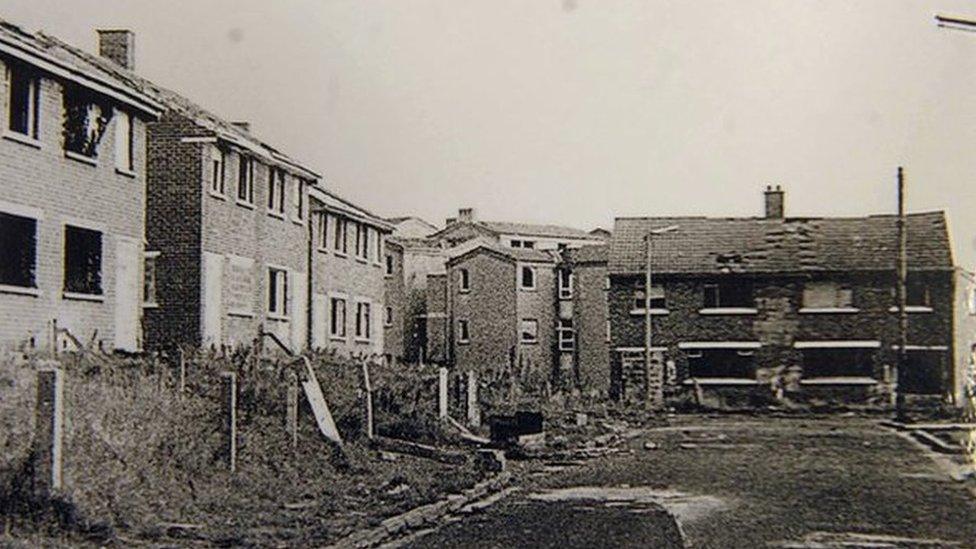
The shootings took place hours after the government introduced a policy of internment
Relatives and supporters gathered outside Laganside Courts beforehand, and several said they approached proceedings with "mixed feelings."
Some had campaigned for many years for a new inquest.
In 2011, Attorney General John Larkin ordered fresh inquests after a campaign by the families.
They had claimed the original inquest held in the aftermath of the shootings was inadequate.
The new inquest is expected to last four months.
- Published6 September 2018
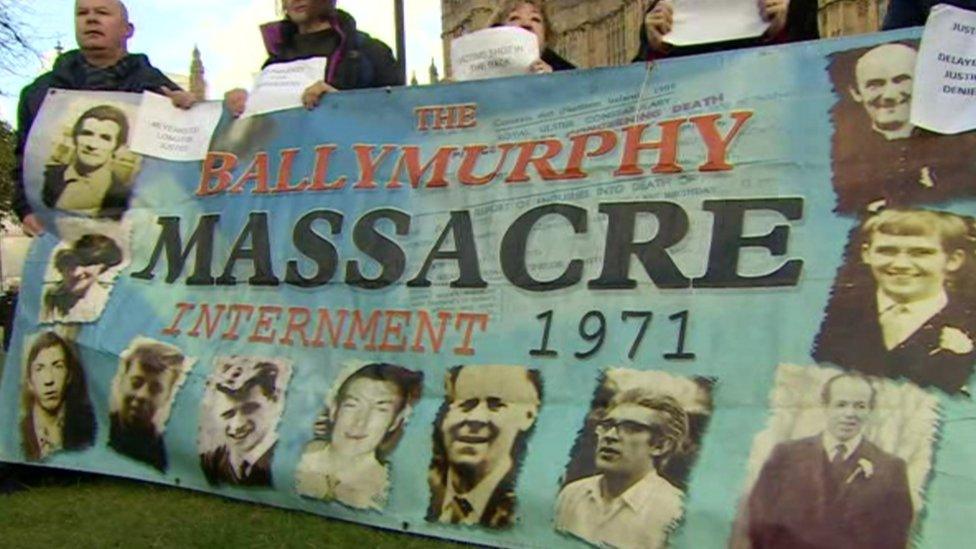
- Published27 July 2018
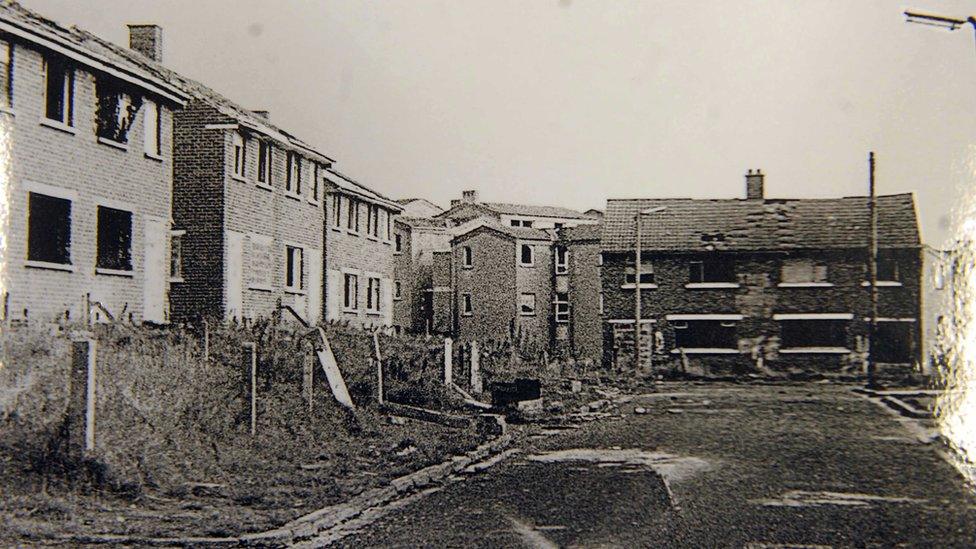
- Published2 May 2018
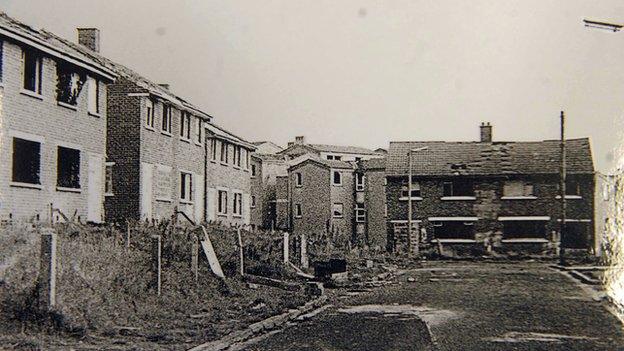
- Published25 January 2018
